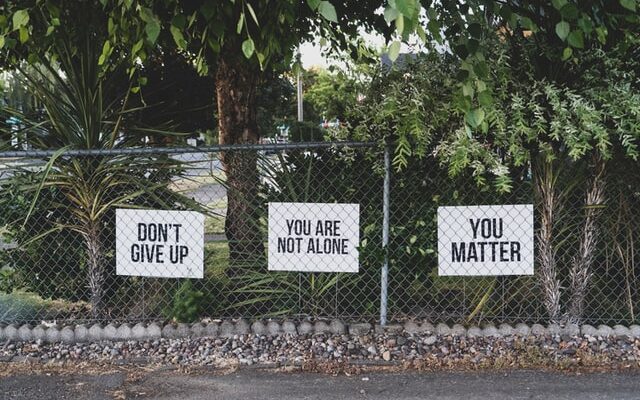Let’s face it, being alive during a global health pandemic is pretty scary. Terrifying, to say the least. Not only is the Coronavirus a threat to our physical health, but it is a HUGE threat to our mental health. Loss of routine, isolation, and fear are just the tip of the iceberg in terms of factors that play a role in our mental health. Many, many people are feeling these effects, and though it is uncomfortable, it is completely normal.
If you are dealing with depression or anxiety, you are not alone. These feelings may not be preventable or even “curable” but they can certainly be managed. I offer a list of ways to help overcome the pandemic blues and provide a sense of well-being. I am in no way a mental health expert of any sort: I am one of you. I struggle with my mental health too, and I understand how frustrating it can be when people try to tell you what you need to change in order to feel better. I am not TELLING you to do anything, these are simply suggestions that I have personally found to be helpful.
1. First and foremost, be easy on yourself.
This is probably the most important thing to keep in mind. If you are having a bad spell, whether it is a day, a week or a few months, it can be hard to avoid those intrusive thoughts telling you that you aren’t doing enough, or that you should be doing A, B and C instead of laying around the house.
I personally am a victim of these thoughts pretty frequently. We must treat ourselves with patience, love, and kindness. If you had a friend who was feeling down, I’m sure you would be doing everything you can to make sure they feel loved and important. Treat yourself the same way. Understand that this is not supposed to be easy. Nurture yourself and cater to your own needs. Listen to your body when it is begging you for rest.
2. Reach out to a family member or a friend.
If you are feeling down or lonely, even if you cannot see a companion in person, you can still reach out over the phone.
Call a parent and tell them how you have been feeling. Call a friend and just chat with them. Rekindle a faded friendship. Sometimes just a simple phone call can take your mind off of things, and who knows, maybe the person on the other end needs someone to talk to also.
3. Get some sunlight and fresh air.
Even though we are supposed to be isolating, we can still get outside. Go for a hike, or even just a walk around the block. If you cannot muster up the energy to do this, then perhaps just sit outside for a few minutes and take in the fresh air and the sunlight.
If you are in a position in which you cannot do this, then open your curtains indoors and let some sunshine in. If nothing else, letting some light into your space will make you feel better than having the curtains drawn.
4. Write in a journal.
With so many thoughts of fear and anxieties circulating through your mind, it is important to have some sort of release.
I like journaling because it is a way to release your stream of consciousness and let some of those not-so-pleasant thoughts out, without fear of judgement or resentment from others who may not understand.
5. Create and (try to) follow a routine.
In our society, our lives are generally centered around routine. These routines typically include going to work, going to school, running errands, going to the gym, etc. Since the pandemic has emerged, many of us have had our daily lives completely shaken and flipped around. This lack of routine causes many people to feel unstable or just simply lost.
Since we can’t yet return to our previous routines, perhaps we can create a new one. For example, while we are at home, you could start by following a simple routine that includes some of the following: wake up, make bed, stretch/yoga, brush teeth, journal, meditate/pray, make breakfast, do chores, read a book, walk the dog, work out, make lunch, do homework, call a friend, leisure time, make dinner, shower, go to bed. Of course I don’t expect you to do all of this; it’s just a generalization.
But you get the idea: create a routine that caters to your personal wants and needs, sometimes routine and consistency can help us feel more stable and balanced.
6. Exercise.
While not all of us have the ability to go to the gym right now, most of us have the ability to do some sort of workout at home. Do some jumping jacks, run up and down the stairs for 20 minutes, do air squats, sit ups, push ups, go for a walk around the block, whatever.
I understand it isn’t always easy to just get up and get active if you are feeling down, but consider trying. Sometimes getting your blood flowing can give you an extra rush of energy. The health of the mind and the body go hand-in-hand.
You are not alone. If you are feeling hopeless, PLEASE reach out to a friend or family member in which you can trust.
Additional Resources:
UCBA Counseling Services 24 Hour crisis line: 513-556-0648 (press 1 to speak with a counselor)
UC Counseling and Psychological Services
National Suicide Prevention Hotline: 800-273-8255 (24/7 service)
By Jules MacLennan, Activist writer





